A decision made by a judge in the coming weeks or months could have major implications for the future of the US airline industry, and in particular, for the future of JetBlue and Spirit…
In this post:
JetBlue, Spirit, and the DOJ have gone to court
In July 2022, it was announced that JetBlue and Spirit would merge. It was quite a path to get to that point, because the initial plan was for Frontier and Spirit to merge, but JetBlue ended up managing to outbid Frontier.
From the beginning, there were concerns about the merger between JetBlue and Spirit getting regulatory approval. Sure enough, in early 2023, the Department of Justice (DOJ) announced that it intended to challenge this merger in court. That’s what has been going on for the past several weeks — the trial began on October 31, 2023, and concluded on December 5, 2023.
The DOJ has been busy on the airline front, and recently was successful with challenging the Northeast Alliance between American and JetBlue, leading to that partnership ending. With the recent announcement that Alaska Airlines would acquire Hawaiian Airlines, I’m sure executives at those two airlines are watching this closely as well.
The DOJ has argued that a merger between JetBlue and Spirit would be bad for consumers, as it would eliminate an ultra low cost carrier from the market, leading to fare increases. The DOJ also claims that in the 51 markets served by both JetBlue and Spirit, fares could increase significantly, due to the combined market share of the two airlines. As the DOJ explains:
“Although all passengers will feel the impact of this acquisition, the harms will fall disproportionately on cost-conscious consumers.These customers depend on competition between JetBlue and Spirit, because without Spirit, they might be priced out of the market altogether.”
JetBlue and Spirit executives have argued that JetBlue being able to grow would be good for consumers, as it would create a fifth low-fare competitor against the “big four” US carriers, comprised of American, Delta, United, and Southwest. Those four airlines control 80% of domestic US market share, so having a fifth competitor would be beneficial.
JetBlue has also announced plans to give up gates and slots at many congested airports, and has struck deals with both Frontier and Allegiant. Furthermore, JetBlue revealed plans to add 25 new routes from Orlando if the merger is approved, which neither of the airlines currently fly, but which could work with a combined airline.
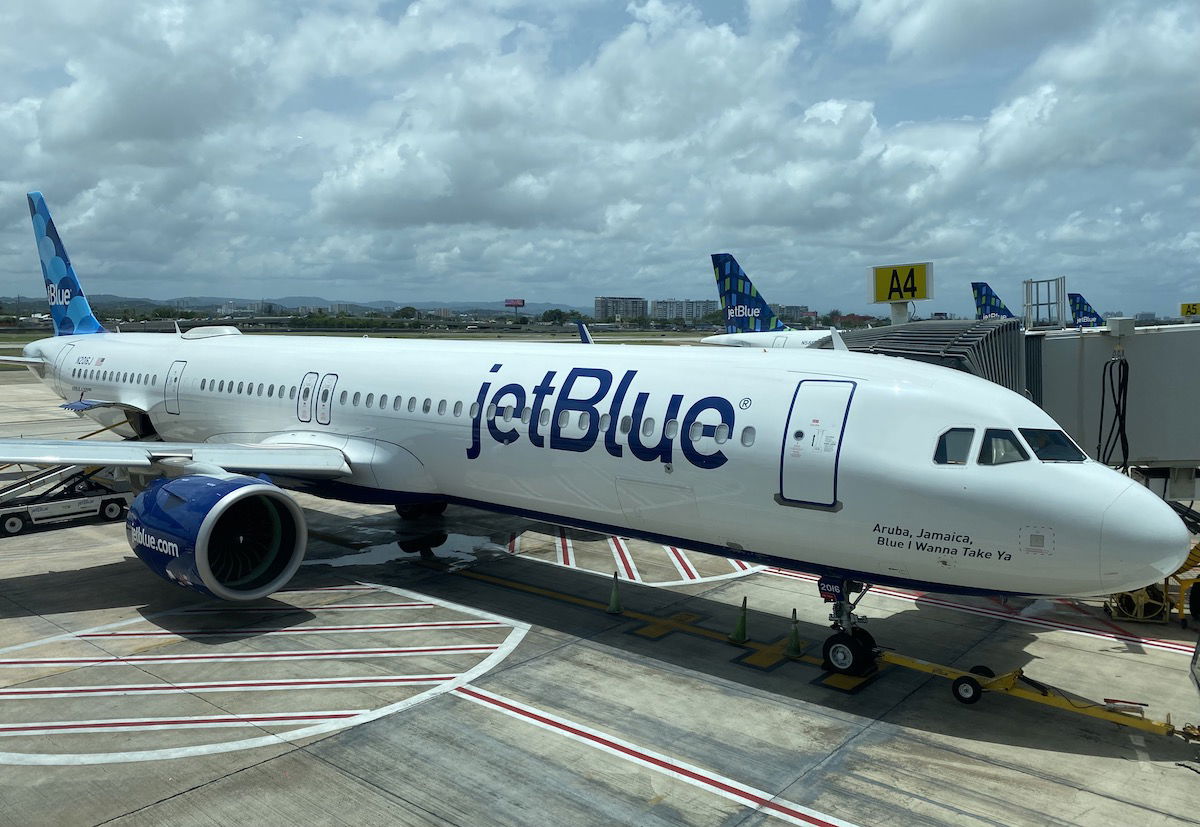
Will the DOJ be successful with its lawsuit?
I’m no lawyer, so I don’t have an educated opinion as to whether the lawsuit will be successful or not. After all, this is a question of law, and not a question of logic. I do have some general thoughts, though.
The DOJ successfully made its case with blocking the American and JetBlue Northeast Alliance, though I think there’s a key distinction there. While I think that partnership was actually good for many consumers, it became clear the way in which American and JetBlue executives were conspiring to act in ways that were anti-competitive, including the ways in which they swapped slots, coordinated schedules, and more.
In the case of a JetBlue and Spirit merger, I just logically don’t see how it’s reasonable to try to block this, especially with how the industry has evolved (which isn’t to say that a legal case couldn’t be made for it):
- The argument frequently seems to be that the US would only be left with one major ultra low cost carrier, Frontier; however, Allegiant is nearly as big as Frontier, and you also have both Avelo and Breeze growing significantly, and they’re competing for similar kinds of customers
- The DOJ claims that fares would increase an average of 30% if JetBlue took over Spirit, but that’s not an apples-to-apples comparison; the airlines include different things with their fares, and most Spirit consumers end up paying a lot more in ancillaries
- When the merger was announced, JetBlue also had the Northeast Alliance with American, and I can see how a merger with Spirit plus the alliance with American would be bad competitively, but that’s no longer in play
- As we’re seeing from ultra low cost carrier financial results, the business model just isn’t resonating with consumers at the moment, and their margins are terrible; even without a JetBlue merger, Spirit may very well want to evolve its business model to add more premium products, because that’s what people are willing to pay for
- JetBlue has objectively been a disruptor since its founding, in offering good value tickets (rather than just the cheapest), between legroom, seat back TVs, and Wi-Fi, JetBlue is one of the best value airlines in the country
- As the legacy carriers increasingly fly higher capacity narrow body jets (like United picking up A321neos), the airlines will increasingly have to compete with basic economy fares that rival those of cheaper airlines, in order to fill those seats, which is also good for consumers
I can’t help but point out the recent comments of United CEO Scott Kirby about ultra low cost carriers, where he argued the following, which almost seems like an endorsement for the need to update Spirit’s business model (which the DOJ is trying to prevent):
“For my entire 30-year career, the airline industry has gone through cycles, and we are in one now…but all of those cycles have ended with the lowest margin airlines forced to make adjustments — which will lead to better results for United. The adjustments are an inevitable economic reality, and I expect it to happen again by 2H24. What’s different this time around, however, is that the lowest margin airlines are the so-called low-cost carriers, and that’s where I think the changes are going to occur.”
Anyway, those are just my thoughts. I’m very curious to see how this all plays out. If the merger does get blocked, I wonder what the future has in store for two airlines.
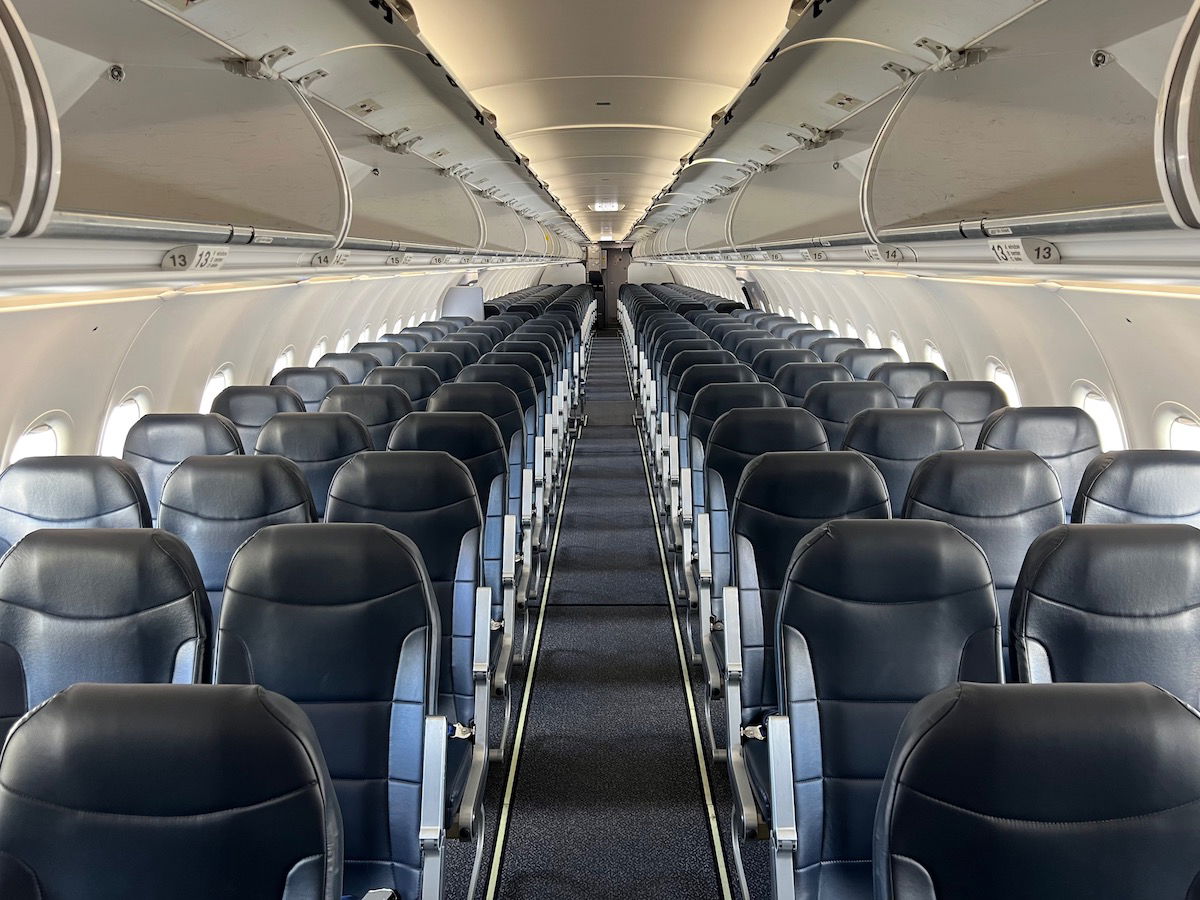
Judge makes some interesting closing remarks
U.S. District Judge William Young has been overseeing this non-jury trial, and the decision rests in his hands. It’s interesting to note some of the comments that he made and questions that he asked during closing arguments. He emphasized that the questions weren’t meant to signal how he would rule, though. As reported by Reuters:
- He told a JetBlue lawyer that he expected airfare would rise if Spirit Airlines is no longer around to “undercut everyone else” and drive down prices, referring to the carrier’s financial issues
- He told both sides he was having “trouble” with the DOJ requesting a permanent injunction blocking a deal in a “dynamic industry facing unique opportunities and challenges in the post-COVID environment”
- JetBlue has already agreed to divest quite a few slots and gates to Allegiant and Frontier to get the deal approved, and Young emphasized that he has “seen cases where a court has decided the divestitures were close but not sufficient and then has proceeded to say this would pass muster if there were this divestiture or that divestiture”
- Young asked the DOJ attorney if he should do something similar if he concludes “what I have before me is insufficient and warrants some restraint,” but that “with some more divestitures it might work”
- The DOJ attorney responded that “there does not seem to be a remedy other than a full-stop injunction that would restore competition,” while the JetBlue attorney stated that this was within the judge’s power
We’ll see what happens here, though those are some interesting questions (all while emphasizing that they don’t indicate how he’ll rule).
Bottom line
The DOJ’s lawsuit against the JetBlue and Spirit merger has just concluded. The DOJ has argued that the merger is bad for consumers and for competition, while JetBlue and Spirit have argued that having a fifth big airline in the United States would be good for competition.
A lot has changed since this merger was announced, from the Northeast Alliance being discontinued, to JetBlue agreeing to give up slots at congest airports, to the ultra low cost carrier business model becoming increasingly questionable.
Now it’s up to a judge to decide on the merit of the arguments made…
How do you see this playing out — do you think the DOJ will be successful?
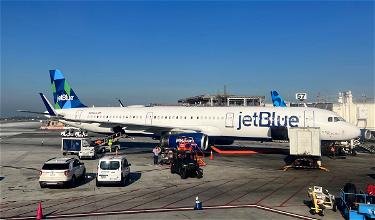

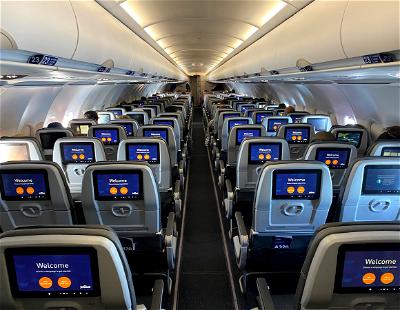
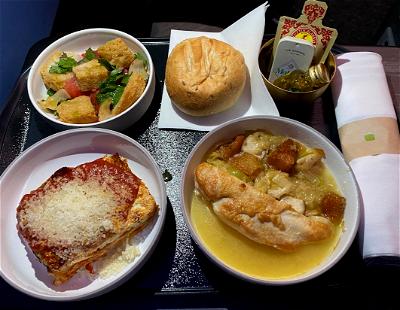
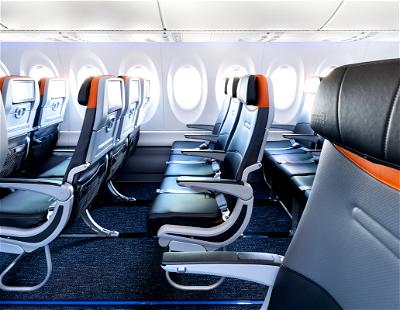
WHAT IF:
Should the B6-NK merger get approval and AA win its appeal of the North East Alliance, JetBlue will be sitting in the cat bird seat.
The biggest issue will be changing the mindset of the Spirit employees to treat passengers as human beings and realize kindness is not a dirty word!
If the merger goes through there is going to be such a world of difference. The Spirit hand to hand combats in mid air between passengers, passengers and staff, passengers and anything that moves will be a thing of the past, LOL!!!!
you write: The DOJ claims that fares would increase an average of 30% if JetBlue took over Frontier, but that’s not an apples-to-apples comparison; the airlines include different things with their fares, and most Spirit consumers end up paying a lot more in ancillaries
Dont you mean "30% if JetBlue took over Spirit"? Not Frontier? I'm confused.
The real issue w/ B6/NK is unlike any of the current big 4 mergers or with the AS/HA merger which was just announced.
B6 is planning through the NK merger to eliminate a competitor in a low fare and cost category, something that hasn't happened in previous mergers.
The DOJ's case is based on harm to consumers that will lose the ability to purchase lower cost tickets w/ NK offers and the economy...
The real issue w/ B6/NK is unlike any of the current big 4 mergers or with the AS/HA merger which was just announced.
B6 is planning through the NK merger to eliminate a competitor in a low fare and cost category, something that hasn't happened in previous mergers.
The DOJ's case is based on harm to consumers that will lose the ability to purchase lower cost tickets w/ NK offers and the economy basic fares which the big 3 match (and WN offers but w/ its usual product attributes). Much of the testimony centered about where the threshold of harm should be drawn and what is a reasonable time period for the DOJ to wait for the market to readjust - and if competitors w/ fill the void that the loss of NK will provide. Those theories are completely untested and unproven in airline mergers.
and B6 and NK do have considerable overlap in FLL which will affect all of S. Florida
There aren't so many barriers to entry in S. Florida these days. FLL has room, especially as WN has moved its intl flying up the turnpike to MCO and is down to less than 40 flights a day - the lowest in non-Covid times in recent memory. I believe JetBlue had proposed giving up the new Terminal 5 with its 5 gates that would have FIS access, for which ground was just broken, but there's...
There aren't so many barriers to entry in S. Florida these days. FLL has room, especially as WN has moved its intl flying up the turnpike to MCO and is down to less than 40 flights a day - the lowest in non-Covid times in recent memory. I believe JetBlue had proposed giving up the new Terminal 5 with its 5 gates that would have FIS access, for which ground was just broken, but there's capacity now if someone wanted in to FLL with FIS access over in Terminal 1.
BOS/EWR/LGA - other than Frontier at LGA, do any LCCs want these assets? Allegiant is already in Newark and Boston and could have grown if it wanted to. It isn't like it is serving markets that have much competition. Avelo and Breeze I can't see really being interested. These are incredibly expensive places to operate on an ongoing basis, even just on transient charges like landing fees. They don't have the financial strength, or aircraft available, to go in with any sort of big showing which really would be needed to sustain ongoing operations. Is one result of this trial that the divestitures must go to a LCC? What if none want them (other than F9 at LGA)? It isn't like years ago when Southwest wanted in.... funny that when NK sold its 3 DCA slot pairs and moved to BWI, airlines like US and DL bid $1-1.5million... and WN started out north of $12 million each (clearly not knowing what they were really worth).
The WN/FL deal a decade ago ended up being little more than eliminating a competitor (and divesting most of that competitor's fleet to Delta, then failing to be able to compete at the level AirTran did against Delta). If they had been as realistic in what they planned to do with AirTran, would DOJ have challenged. Southwest said ATL would quickly be its largest station with 300+ flights a day, the 717 would open up many second/third tier markets, etc. etc. None of that happened. It's debatable whether WN really believed it was going to achieve that or not (I'm of the view they thought they would somehow pull it off).
The issue is not about giving up assets to allow a competitor to come in; it is about having a competitor that is willing to step in - according to the DOJ - and I see their point.
Allegiant doesn't compete against other carriers as NK does. Frontier has said that the ULCC model works but they couldn't possibly grow fast enough to take NK's place in all of the markets that would be...
The issue is not about giving up assets to allow a competitor to come in; it is about having a competitor that is willing to step in - according to the DOJ - and I see their point.
Allegiant doesn't compete against other carriers as NK does. Frontier has said that the ULCC model works but they couldn't possibly grow fast enough to take NK's place in all of the markets that would be lost.
The judge will have to decide if it is too costly to the public to allow a merger that would eliminate lower fares through fewer seats per aircraft in the B6 model and by giving the big 4 less reason to match ultra low cost carrier matching fares.
in markets such as FLL, it is a given that fares will go up. B6' commitment to add more service to FLL and grow in MCO is just responding to a growing market but doesn't mean the new seats will be priced the way NK would price them.
B6 is planning through the NK merger to eliminate a competitor in a low fare and cost category, something that hasn't happened in previous mergers.
"Come again?"
~signed, AirTran
First, AirTran and Southwest were both low cost carriers in the same category and
Second, I think the DOJ has realized they did consumers no favors by allowing WN to take over FL.
As much as B6 wants to think they should be able to do what other airlines have done - even if everything is equal - the DOJ doesn't have to make the same mistakes twice
Horrible idea merging these two airlines........JetBlue today is nothing like the airline they were five years ago (unreliable as hell) and SPIRIT is just flat out awful. The integration alone will be ugly from reconfiguring the aircraft, redesigning the onboard product and training two very different cultures of employees. Bad idea allowing this to go thru in tougher economic times and I could see the new entity in a tailspin very quickly.
The retraining of Spirit employees would entail: do not have fear in your heart and do not hide when JetBlue customer approaches, they will not throw a punch at you like the old Spirit flyers would. LOL!! Also, training in customer demographic: JetBlue customer is not on government assistance other than an SBA loan for their start-up business, the Spirit flyer...well. LOL!!!
I'm no lawyer, but on its face blocking this merger (especially with the divestitures) would be illogical. The DOJ allowed the country's 6 largest carriers to combine into 3 mega-carriers. The DOJ allowed Southwest to gobble up AirTran and Alaska to acquire Virgin America. All of these decisions were made while JetBlue grew organically, and now that JetBlue has run out of resources to grow (whether its gate space, planes, pilots), it should be allowed...
I'm no lawyer, but on its face blocking this merger (especially with the divestitures) would be illogical. The DOJ allowed the country's 6 largest carriers to combine into 3 mega-carriers. The DOJ allowed Southwest to gobble up AirTran and Alaska to acquire Virgin America. All of these decisions were made while JetBlue grew organically, and now that JetBlue has run out of resources to grow (whether its gate space, planes, pilots), it should be allowed the same opportunity to acquire a smaller competitor and continue growing. The public is more well served with a larger, stronger JetBlue that can more effectively compete against DL/UA/AA/WN/AS, while directly opening up opportunities for Frontier and Allegiant to compete in some of their largest markets.
Seems like a win-win to me.
I agree and now you have Alaska trying to merge with Hawaiian.
It's only fair to allow JetBlue kill itself off in a slow death.
You're using mergers that occurred up to a decade and a half ago, several of which would be viewed as anti-competitive and anti-consumer under the current administration's July 2021 E.O. to promote corporate competition as an economic strategy; as a means to say that it's illogical if this one isn't pushed through?
Doesn't work that way.
The question before the court isn't "what's fair to JetBlue's corporate growth strategy," its what's best for consumer protection.
This will take longer than a few weeks.
The AA/B6 court case concluded in October last year and the decision came in May. I wouldn’t expect a decision here anytime soon.
Shareholders are waiting for the deal to close, unlike with the NEA where the alliance was already in effect. This will be decided more quickly.